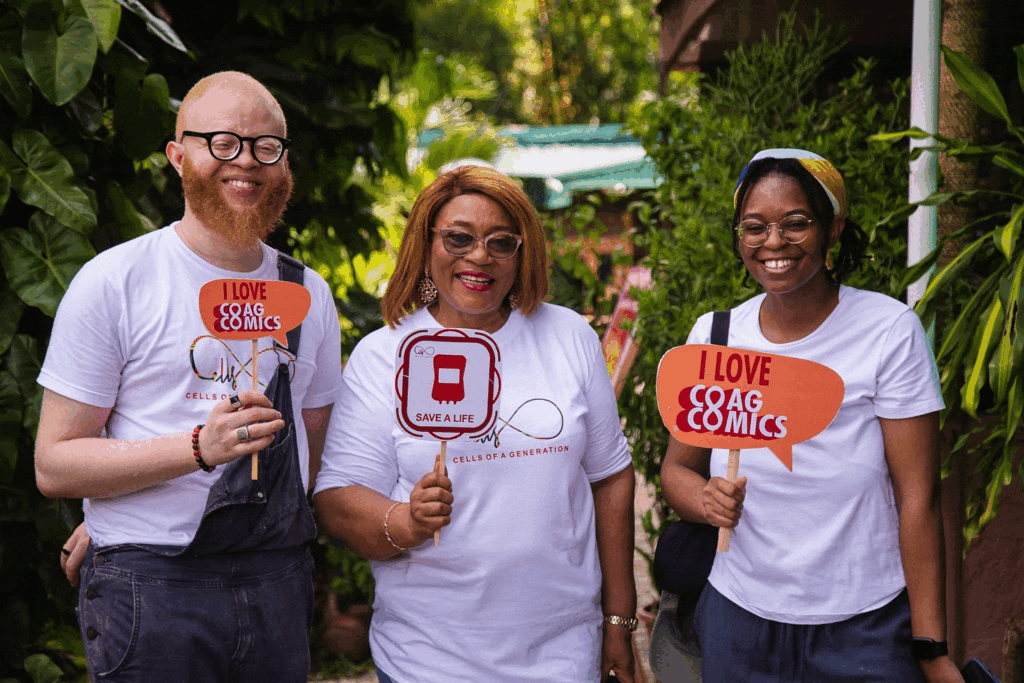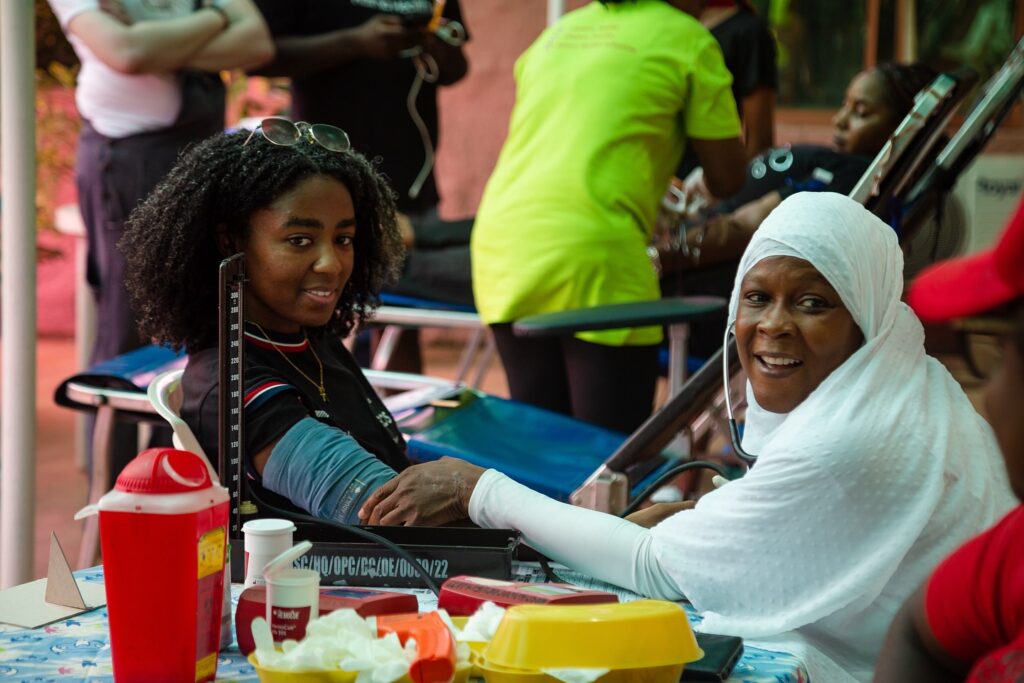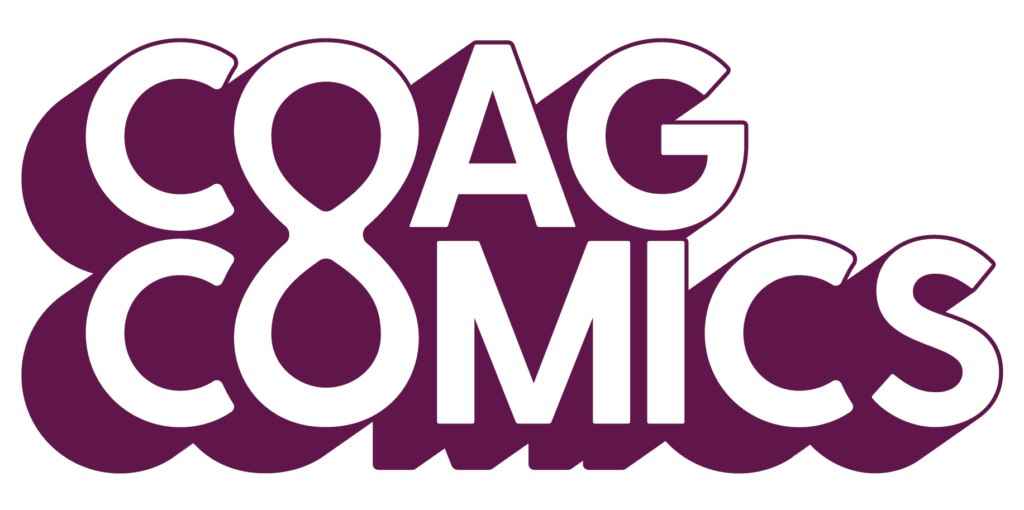About COAG
Comics
Founded by Sharon Browne-Peter, our comics and experiences
make health topics more accessible. From The Didi Project to
The Crisis Saga, we blend storytelling with education to drive real change.

Based in London, our approach intertwines health education with the art of storytelling, making it relatable and easy to understand. The comics
we create transcend into workshops and experiences that not only educate but also empower individuals, especially those from marginalized communities.
Through panels and speech bubbles, we create engaging, thought-provoking comics that center on the experiences of those living with sickle cell, challenging stigma, and sparking important conversations.
About COAG
Comics
Founded by Sharon Browne-Peter, our comics and experiences make health topics more accessible. From The Didi Project to The Crisis Saga, we blend storytelling with education to drive real change.

Based in London, our approach intertwines health education with
the art of storytelling, making it relatable and easy to understand.
The comics we create transcend into workshops and experiences that not only educate but also empower individuals, especially those from marginalized communities.
Through panels and speech bubbles,
we create engaging, thought-provoking comics that center on the experiences of those living with sickle cell, challenging stigma, and sparking important conversations.

Using Storytelling
To Create Change
COAG Comics is more than just a comic book imprint. We are a movement. Based in London, we use the power of storytelling to educate, inspire, and drive real-world change. Through our comics, campaigns, and community events, we raise awareness about
critical health and social issues, particularly the fight against sickle
cell disease.
But our impact doesn’t stop in the UK. We raise funds for sickle cell patients in Nigeria, where the disease remains a major public health crisis. By combining art, advocacy, and action, we are building a bridge between communities and making a difference where it’s needed most.
Why Sickle
Cell Disease?
In Nigeria, the situation is even more critical. Nigeria has
the highest number of sickle cell cases in the world, with
over 150,000 babies born with the disease every year.
Many children do not survive beyond the age of five due
to limited healthcare access, lack of early diagnosis, and
inadequate treatment options.
Sickle cell disease (SCD) is the most common genetic blood
disorder in the UK, disproportionately affecting Black and
ethnic minority communities. While there have been medical advancements, patients still face:
HEALTHCARE
INEQUALITIES
Delayed treatment and
lack of
awareness in the medical system
BLOOD
SHORTAGES
A severe need for more Black blood donors to support sickle cell patients.
STIGMA &
MISUNDERSTANDING
A lack of education about the disease and its impact on daily life

Using Storytelling
To Create Change

COAG Comics is more than just a
comic book imprint. We are a movement. Based in London, we use
the power of storytelling to educate, inspire, and drive real-world change. Through our comics, campaigns, and community events, we raise awareness about critical health and social issues, particularly the fight against sickle
cell disease.
But our impact doesn’t stop in the UK. We raise funds for sickle cell patients
in Nigeria, where the disease remains
a major public health crisis. By combining art, advocacy, and action, we are building a bridge between communities and making a difference where it’s needed most.
Why Sickle Cell Disease?

In Nigeria, the situation is even
more critical. Nigeria has the
highest number of sickle cell cases
in the world, with over 150,000
babies born with the disease every
year. Many children do not survive beyond the age of five due to limited
healthcare access, lack of early diagnosis, and inadequate treatment options.
Sickle cell disease (SCD) is the most common genetic blood disorder in
the UK, disproportionately affecting Black and ethnic minority communities.
While there have been medical advancements, patients still face:

